
Fulbright-Hays DDRA Fellows
2023-2024 Fellows
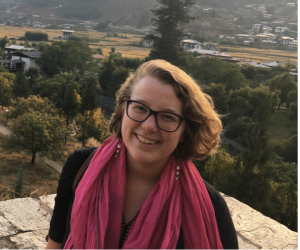
Dana McLachlin
Cultural Anthropology
Dana McLachlin is a Ph.D. candidate in cultural anthropology at Duke University. Her background is in Women, Gender & Sexuality Studies and Sociology (BA, University of Richmond, 2014) and Social Science (MSc, University of Amsterdam, 2019). Her present research focuses on energy transition and economic growth amidst climate change in Bangladesh; her interests include feminist studies, economic anthropology, and science and technology studies.
The Fulbright-Hays DDRA fellowship will allow Dana to conduct 12 months of ethnographic research in Bangladesh among solar energy producers and consumers. Dana will study the role of solar energy within competing pressures to expand electricity access, pursue economic growth, and adapt to climate change.
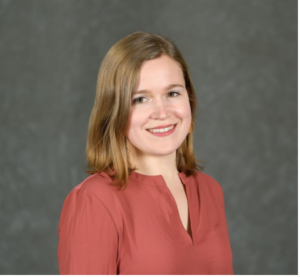
Rosalind Rothwell
History
Rosalind Rothwell is a Ph.D. student in History at Duke University. Her dissertation, “Intoxicating Things: Global Material Culture and Empire on British and French Coromandel, c. 1670-1757,” explores the sociocultural and economic history of global imports in British Madras and French Pondicherry, two port cities on India’s southeastern Coromandel Coast. With the support of the Fulbright-Hays DDRA Award, Rothwell will conduct six months of research in archives and museums across the U.K., including the British Library, he National Archives, the National Records of Scotland, Highland Archive Service, Powis Castle, Erddig, the Victoria & Albert Museum, and the National Portrait Gallery. She will consult records in English, French, Portuguese, and Tamil. This trip follows earlier research trips to France and India.
The Fulbright-Hays Doctoral Dissertation Research Abroad program provides opportunities to doctoral candidates to engage in full-time dissertation research abroad in modern foreign languages and area studies. The program is designed to contribute to the development and improvement of the study of modern foreign languages and area studies in the United States. Award funding covers international travel expenses, maintenance allowance, project allowance for research-related expenses, and health and accident insurance premiums for a trip lasting between six and 12 months.

2022-2023 Fellows
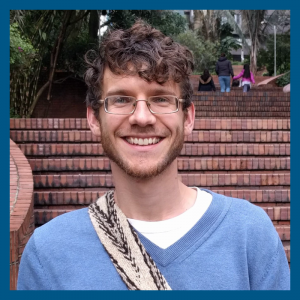
Joe Hiller
Cultural Anthropology
Joe Hiller is a Ph.D. student in Cultural Anthropology at Duke University. His background is in Gender, Women’s, and Sexuality Studies (BA, Grinnell College, 2012) and in Latin American Studies (MA, Tulane University, 2018). His present research focuses on prisons, decarceration and justice in Colombia. Other interests include: affect studies, feminisms, anthropology of the law, and fiction.
The Fulbright-Hays DDRA Award will allow Joe to conduct nine months of research in Colombia for his dissertation, titled “Love-Politics and the Prison-Society Nexus: Care Confinement and Carceral Transformation in Colombia”. Joe will collaborate with prison reform organizations and accompany family members of incarcerated individuals on prison visitations in an attempt to understand what imprisonment means for them and what they hope to achieve in terms of carceral reform.

Melissa Karp
Literature
Melissa Karp is Ph.D. candidate in the Program in Literature at Duke University. Her background is in Comparative Literature, East Asian Studies and French (BA, Oberlin College, 2018). Her research interests include memory studies and literatures of mass violence, with a focus on French and Korean 20th century literatures.
Melissa will conduct research for two months in South Korea and four months in France for her dissertation, titled “Imagining the Collaborator: Ghosts of Occupation in Transwar France and Korea”. Melissa will visit memorials and museums throughout France and Korea to learn about the ways war memory is transmitted in public history spaces.

2021-2022 Fellow
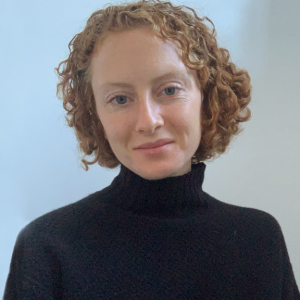
Sophia Goodfriend
Cultural Anthropology
Sophia Goodfriend’s ethnographic research examines the ethics and impact of emerging surveillance technologies in Israel. Goodfriend’s research takes place among high-tech workers, policy-makers, and entrepreneurs driving the development and implementation of surveillance in the region as well digital rights advocates and communities contesting the effects of high-tech surveillance, particularly biometric monitoring. By moving between diverse communities, Goodfriend highlights the promises and uncertainties of new surveillance regimes.
The Fulbright-Hays will allow Sophia to conduct 12 months of ethnographic research in both Tel Aviv and Jerusalem. During this time, she will be affiliated as a visiting scholar at Tel Aviv University, sharing her findings with academics, civil society organizations, and policy-makers.

2020-2021 Fellows
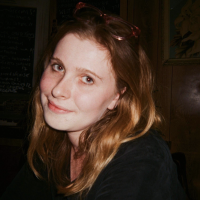
Jacqueline Mercier Allain
History
Jacqueline Mercier Allain is a James B. Duke fellow and a founding member of Duke’s Working Group in Slavery, War, and Gender. Her research interests lies in the Anglophone and Francophone Caribbean, with a particular emphasis on women and gender both during slavery and in the post-emancipation era. Her dissertation, “Birthing Imperial Citizens: Natal Politics in Martinique, 1830-1900” explores the intersections of motherhood, (re)production, and citizenship in nineteenth-century Martinique. Her project is structured around four questions:
i. How did France’s successive policies in the area of birth and early childhood education reverberate in the colonial world?
ii. Did the behavior of female ex-slaves or descendants of slaves with regard to births and parenthood change with the emancipation of 1848?
iii. What role does motherhood play in registering women as colonial subjects?
iv. How does this relationship between maternity and citizenship inform the permanence of inequalities in the postcolonial world?
The Fulbright-Hays DDRA fellowship will allow Allain to spend 6 months in France consulting several major archives such as Nationales d’Outre-Mer (ANOM), located in Aix-en-Provence, the Archives Départementales de laMartinique (ADM) in Fort-de-France, Martinique, and the Biblioteque Nationale (BN), Bibliothèque de l’Arsenal (BA), and Archives Nationales (AN) in Paris. She will also use this opportunity to connect with local academics, archivists and scholars to further her research.
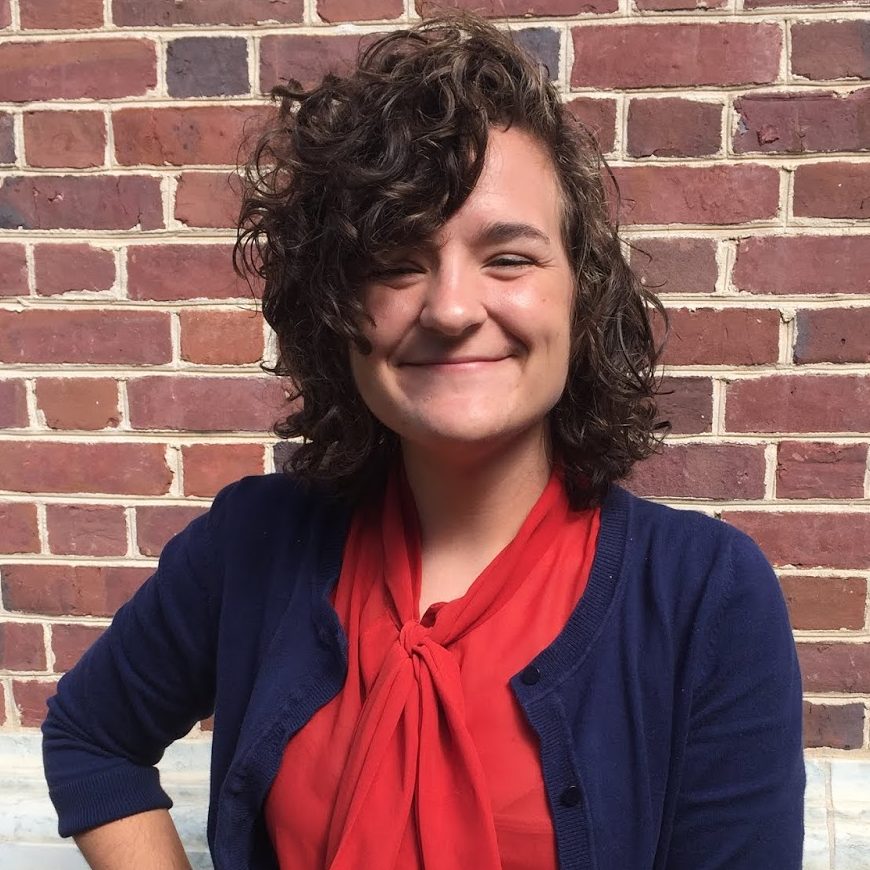
Natalie Gasparowicz
History
Gasparowicz’s research explores how and why various Mexican Catholicisms formed in response to the newly invented birth control pill in the second half of the 20th century. Instead of privileging the institutional Church and prescriptive texts, Gasparowicz focuses on how Mexican Catholics lived their faith in their bedrooms. Through the lens of “lived religion,” Gasparowicz analyzes the papers of alternatively minded clergy and bishops, laypeople, and the media they consumed and produced. By focusing on when Mexican Catholic ideas and acts about the pill and sex were in flux, Gasparowicz’s research reveals the dynamic and contested nature of Catholicisms in Mexico.
With the support of the Fulbright-Hays DDRA fellowship, Gasparowicz will consult the archival collections of Escuela Nacional de Antropología e Historia, National Library of Universidad Nacional Autónoma de México, Centro Académico Memoria Nuestra América, and other archives in Mexico. She will also conduct oral history interviews with Catholic laywomen and activists.

2019-2020 Fellow

Anderson Hagler
History
How did indigenous and subaltern peoples experience the Enlightenment in Mexico? What does it mean to have been a devout Catholic parishioner or a believer in popular magic?
With the support of the Fulbright-Hays DDRA fellowship, Anderson Hagler will delve into several archival collections throughout Mexico to answer these questions. Hagler’s project looks into how mixed-race commoners’ and indigenous vassals’ interpretations of religion, magic and humanity challenged sovereignty in the supposedly rational Enlightenment era. By analyzing Nahuatl-language documents and Nahuatl terms in Spanish-language records, Hagler will attempt to decolonize certain aspects of Inquisition and criminal records in order to gain a more profound understanding of non-orthodox beliefs in colonial New Spain.
Hagler will examine charges of heresy and idolatry to see how popular practices and beliefs shaped and contested enlightened Spanish officials’ understanding of humanity. For instance, the Mesoamerican belief in the nahual, or shapeshifter, was an indigenous concept that held cosmological import long before Europeans invaded the Americas. Shamans endowed with this ability gained status within their community since they held the power to recalibrate the spiritual world. After the Spanish conquest of Mexico, the Church viewed shamans as competition for the conversion of souls. However indirectly, shamans and the ability to transform into animals challenged orthodox methods of supernatural intervention. Studying the tensions between shamans and their clerical counterparts will help Hagler to understand how the concept of orthodoxy related to the so-called natural world in the seventeenth and eighteenth centuries.

2018-2019 Fellow
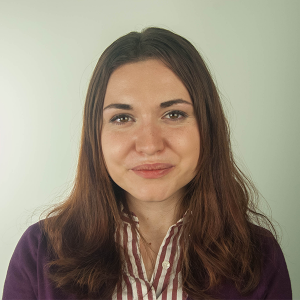
Elsa Costa
History
Elsa is an intellectual historian concentrating on Spain and its possessions in the Renaissance and Enlightenment. Her dissertation, a study of the Spanish Empire during the Enlightenment, explores how political economy emerged from moral philosophy during the transition from Habsburg to Bourbon rule. Originally from Chicago, Elsa has a BA in Latin American Studies from Bennington College and an MA in Ibero-American history from Duke. Her other interests include twentieth-century French, German and Brazilian philosophy, medieval theories of pedagogy, and women’s writing in contemporary Latin America. She has published or presented papers on all these topics. Her dissertation research takes her to Madrid and to Mexico City, where she will read the political theories of monks, priests, scientists, lawyers, royal advisors, dilettante scholars, aristocratic women, and others. Far from the medieval notion it is sometimes assumed to be, the divine right of kings belongs to the Renaissance and early Enlightenment. Elsa expects to watch it emerge in these texts. While in Madrid, she hopes to catch at least a few concerts by her favorite Spanish musician, Sr. Chinarro.

2017-2018 Fellows
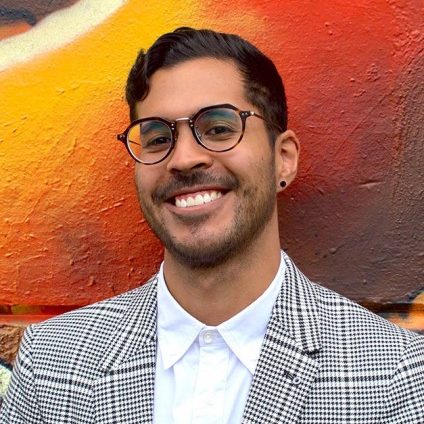
Robert Franco
History
Issues of sex and sexuality have had an uneasy, if not antagonistic, relationship with the revolutionary politics of the Mexican Communist Party and the other left-wing organizations since their foundation. Franco’s dissertation project historicizes this enduring divide by examining scandalous explosions of homophobia, heterosexism and hostility towards sexual politics among political parties and movements of the Mexican Left throughout the 20th century. This research aims to understand better why sexual politics wax and wane as areas of concern for the Mexican Left and how these parties came to build strategic alliances with sexual rights activists through a policy of tolerance.
During his year with the Fulbright-Hays fellowship, Franco will conduct archival research in Mexico and Amsterdam at the Centro de Estudios del Movimiento Obrero y Socialista, the International Institute of Social History, the Archivo General de la Nación, and other archives around Mexico. He will also be conducting oral history interviews with former militants of Mexico’s leftist parties, as well as with LGBT and women’s organizations.

Gray Fielding Kidd
History
Kidd’s field research takes him to Recife, Pernambuco, a port city of 1.6 million inhabitants and Brazil’s ninth largest metropolitan region. The Fulbright-Hays DDRA fellowship is supporting his study of how a diverse array of historical actors and their corresponding political and aesthetic projects converged through so-called “popular” culture from the late 1950s to the mid-1980s.
Drawing on literary, visual and dramatic works, Kidd is currently studying how Recife’s lettered and popular classes have diverged over spaces and methods used to embody “authentic” cultural practices. He is also growing his network of local folklorists, Afro-Brazilian religious leaders, community activists, and politicians.
Kidd’s fieldwork so far has revealed that the cultural and political ferment most often associated with Recife between 1950 and 1990 actually occurred statewide. The interior of the state has been a fundamental, if less commonly recognized, player in statewide debates about culture and politics. Moreover, cultural objects and practices most often associated with the interior have come to define how Pernambucans see themselves in relation to the rest of Brazil. Kidd’s project has therefore evolved into a richer, more ambitious study of Pernambuco as a whole. His larger project examines how “authentic” popular culture has grown out of a polysemic dialogue between coast and interior in the “Lion of the North.”

James Nealy, Jr.
History
Nealy is an historian of modern Europe focusing on the history of Russia. His dissertation project considers the history of industrial relations in the Soviet Union in the context of the Communist Party’s efforts to reform the Soviet socioeconomic order during the late 20th century.
The Fulbright-Hays DDRA fellowship will allow Nealy to spend nine months in archives and libraries in Moscow and Tula beginning in March 2018, to conduct a critical part of his dissertation research. There he will focus on the records of Soviet trade unions, the Communist Party, and key industrial ministries to trace how changes in the Soviet Union were reflected in the world of work.

Matthew R. Sebastian
Cultural Anthropology
Sebastian’s project investigates how Ugandan youth navigate the limits and possibilities of post-conflict life and the interventions designed to help them do so.
In northern Uganda, where protracted conflict has been present throughout young peoples’ lives, governmental and non-governmental actors have made youth the primary aim of their interventions. Sebastian studies the afterlives of both war and humanitarianism in a context where the idiom of emergency no longer applies despite the deep carry-over of programs, institutions and discourses of intervention, and where the economies that sustained the war have been transformed and domesticated into spaces such as the NGO compound, the walled private home, and privatized pieces of land.
The Fulbright-Hays DDRA fellowship will fund twelve of the sixteen months of fieldwork that Sebastian will conduct during his dissertation research. His project examines the durability of humanitarian intervention in the everyday lives of young people across three key sites: securitized spaces (e.g., NGO compounds, private homes and land plots), where young men and women work as armed guards; a local nongovernmental organization that works to reintegrate incarcerated youth; and a local governmental initiative focused on combating youth idleness.
